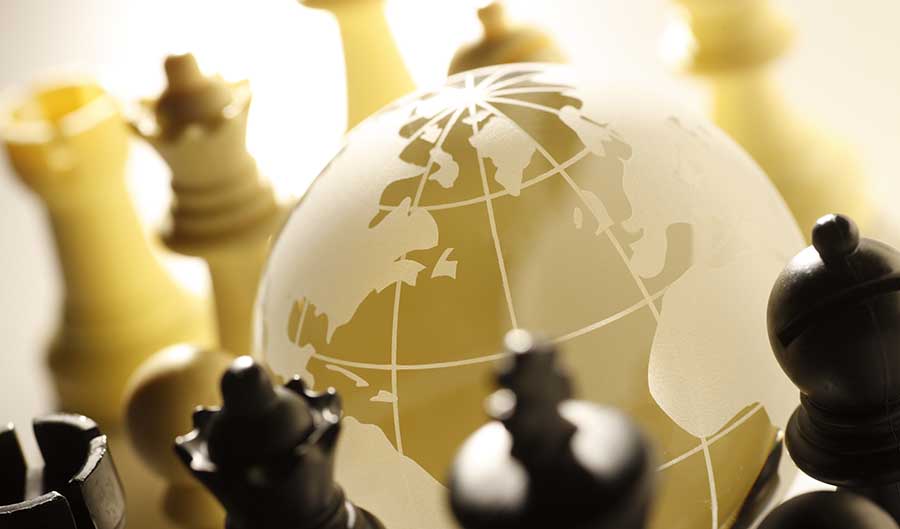Doug Bandow, Senior Fellow, Cato Institute
Jan 19, 2023
America and China have no choice but to engage each other and the nature of their future relationship might be uncertain and even difficult, but will inevitably be close. But while recent diplomatic and leadership moves have indicated that Xi Jinping wants to improve relations with Washington, skeptics warn against believing that the policy of the PRC has changed fundamentally.

Wu Xinbo, Director of the Center for American Studies, Fudan University
Jan 12, 2023
The United States lacks the strength and influence to simultaneously contain both China and Russia. As with the Iraq and Afghanistan wars, its policies will place it in strategic overdraft and lead to more strategic errors.
Richard Javad Heydarian, Professorial Chairholder in Geopolitics, Polytechnic University of the Philippines
Nov 11, 2022
There are growing indications that Washington has embraced a new era of great power competition with China, and the recent security documents released by the Pentagon identified China as the most significant threat to America. But without a diplomatic breakthrough between the two nations, it’s possible the superpowers are heading towards a “New Cold War,” which is threatening decades of peace and prosperity in the Indo-Pacific.
Brian Wong, Assistant Professor in Philosophy and Fellow at Centre on Contemporary China and the World, HKU and Rhodes Scholar
Oct 20, 2022
The nature of U.S.-China relations have become increasingly polarized since the mid-2010s. It seems like both sides sit on opposite sides of a spectrum, when in reality, both nations exert influence and control over resources and neighbors that could be organized to work well together.
Yu Hongjun, Senior Research Fellow, Academy of Contemporary China and World Studies
Oct 20, 2022
In turbulent times, China remains steadfastly committed to its path of peaceful development. The words of President Xi Jinping and State Councilor and Foreign Minister Wang Yi are worthy of thoughtful study.
Dong Chunling, Deputy Director, Office of the Center for the Study of a Holistic View of National Security, CICIR
Oct 03, 2022
The U.S. strategic community’s assessment of America’s China policy can make a major difference in bilateral relations. Crises have a double edge: They provide challenges but also opportunities. Whether or not U.S. leaders will listen to the experts remains an open question.
Doug Bandow, Senior Fellow, Cato Institute
Sep 30, 2022
The Russo-Ukraine conflict has raged on and looks to continue into the near future, straining relations in Europe. The ripple effects of military conflict involving a pronounced foe of the United States has created an even more tense climate on a global stage that already sees U.S.-China relations declining at an alarming rate.

Zhu Feng, Dean of School of International Studies, Nanjing University
Sep 30, 2022
Major-country relations are changing dramatically. Chinese academics and political leaders should conduct an in-depth analysis of what China faces. The United States has already started a new Cold War in regional and global industrial chains.

Brian Wong, Assistant Professor in Philosophy and Fellow at Centre on Contemporary China and the World, HKU and Rhodes Scholar
Aug 26, 2022
It is counterproductive to set China and the ‘West’ up as rivals locked in an existential struggle over values. In light of the increasingly polarized views of the East and the West, it is crucial to steer clear of political absolutism to have a more truthful understanding and practical progress on a range of issues such as policy, education, health, etc.

Xiao Bin, Deputy Secretary-general, Center for Shanghai Cooperation Organization Studies, Chinese Association of Social Sciences
Aug 26, 2022
Its biggest troubles come from Western sources, which have levied sanctions and provided military aid to Ukraine. While Russia has lost the ability to manipulate international politics, an alignment with China could add new variables.
Back to Top

- China-US Focus builds trust and understanding between the U.S. and China through open dialogue among thought leaders.
- Our Offerings
- Topics
- Videos
- Podcasts
- Columnists
- Research Reports
- Focus Digest
- Stay Connected
-
Thanks for signing up!
- Get the latest stories from China-US Focus weekly.